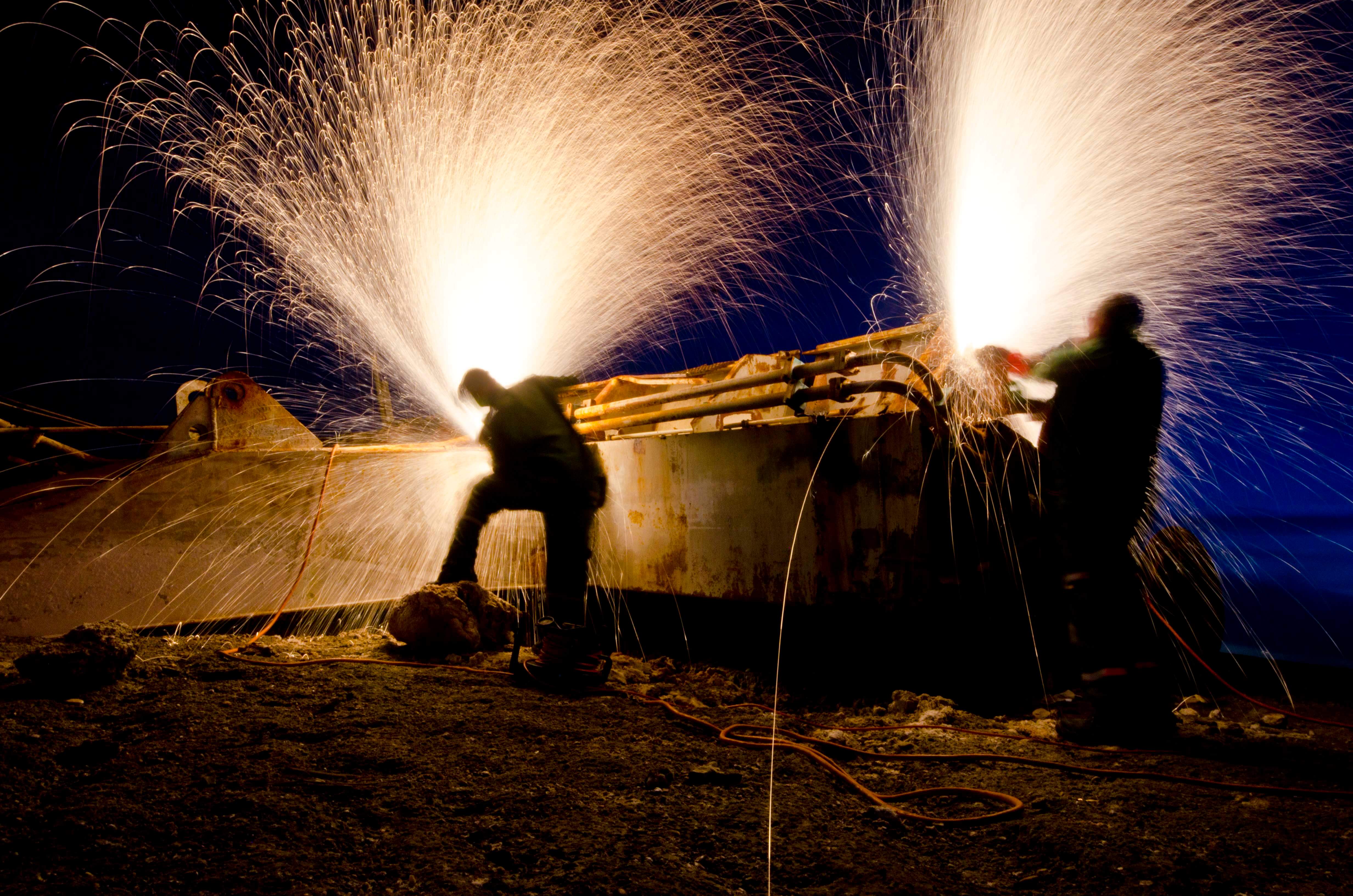Changing the Safety Culture
Ensuring the health and safety of our workers and dependents is a top priority at all ICL’s sites and facilities. One of ICL’s main safety goals is to raise awareness of employees to the risks around them and to reduce the number of incidents and accidents. ICL pursues this through unified, proactive and preventative safety management procedures. This proactive approach is changing ICL’s safety culture and helps to better manage the work environment. We consider ongoing learning and improvement as keys elements for our success in this process. \
ICL adopts the most advanced methods to improve its safety performance. Safety and occupational health enforcement plans are implemented at all of our divisions, in addition to regular internal and external audits, to confirm compliance with the law and internal ICL procedures. Analysis of accidents and “near misses” is conducted by all ICL companies.
Several of our subsidiaries issue awards to ICL and contractor employees for their safe behavior and other sites engage in annual safety contests between business units. We have established improvement teams that operate at plants to develop and implement advanced and original ideas for improving safety. Contests, including prizes for safety achievements, are held annually.
To achieve excellence in safety performance, ICL is stepping up its safety efforts with a number of initiatives, including:
- Coordinating activities of safety management processes between all of ICL’s companies.
- Implementing the ‘Safety by Routines’ program (see below) and the HOP (Human Operational Performance) program, to improve the safety culture.
- Implementing focused processes including a task-oriented safety program and a ‘Safety on your Mind’ program.
- Continuing to implement an Operative Risk Management methodology to manage and prevent safety risks.
- Conducting an organized enforcement program of safety and health issues conducted by a third party (law firm).
- Engaging in comprehensive safety training and certification control systems for employees, service providers and contract employees.
- Conducting tests and environmental and hygiene monitoring of occupational work areas, as required by regulations and company policy to ensure the health of employees;
- Conducting occupational hazard risk surveys to prevent employees from being exposed to hazardous materials and processes in plants.
- Offering periodic medical checkups for employees, and occupational medicine and preventative medicine programs, in cooperation with hospitals and experts in these fields, inside the plants.
- Conducting inter-company activities to assimilate safety awareness information, disseminate lessons learned, receive feedback, and to encourage plans and ideas of employees.
- Developing a computerized control system for safety and occupational health management at ICL companies with an emphasis on training all employees about relevant safety information for their profession.
- Developing trained, skilled and well-equipped emergency groups at ICL plants to ensure an appropriate response to industrial emergencies and natural disasters.
- Performing emergency drills with various scenarios in accordance with an annual plan;
- Updating risk surveys of all events that may harm the Company if they were to occur, with the assistance of external consultants, in conjunction with safety management regulations which took effect in August 2014 in Israel;
- All ICL plant managers in Israel undergo a certification course for work safety, established by the Ministry of Economy. The course is a mandatory requirement for their role as plant manager.

Changing Safety Culture – Safety By Routines
The “Safety by Routines” program has been implemented in some of ICL largest sites in Israel. The purpose of the program is to improve plant safety performance in ICL plants by creating a unified, proactive and preventative safety management routine to reduce the number of incidents and accidents.
ICL researched and mapped the primary causes of accidents and discovered that one of the main factors of accidents is the human element. Results indicated that ~85% of accidents occur due to human error or work that wasn’t performed in accordance with recommended guidelines. As a result, the company is implementing programs to assimilate a culture of safety. One of these programs is ‘Safety by Routines’, which is based on ‘Best Practices’ gathered from ICL’s production sites worldwide. Managers were asked what factors contribute most to safety and the resulting seven routines were integrated into day-to-day conduct. These routines include emergency drills, professional training, safe environmental patrol, executive control, roundtables (lesson learning), weekly discussions and weekly closing sessions. Managers conduct surprise rounds to determine employee preparedness and supply of safety equipment. The roundtables are an opportunity to discuss and learn about events without taking disciplinary action, taking into account a broad range of perspectives.
This program is supported by a mobile app and software that allows workers to send messages regarding issues and hazards of which they become aware, and to receive in return an update on actions taken to resolve or remove the hazards. Removing hazards before accidents occur reduces the risk of injury. Managers can also receive a clear view of safety performance in the plant.
Plant managers are responsible for fulfilling and implementing the program and engaging in the routines continuously. Each plant is certified at the end of the process.
Advancing Safety Programs at ICL’s Mines

Reducing the risks of industrial accidents is a top priority at all of ICL’s sites. The challenge is multiplied at industrial chemical facilities and underground mines in the UK and Spain. Most accidents result from several factors, inherent risks in working underground, environmental conditions in the workplace, working with heavy machinery and the human factor. One of ICL’s main safety goals is to raise the awareness of workers to the risks surrounding them.


